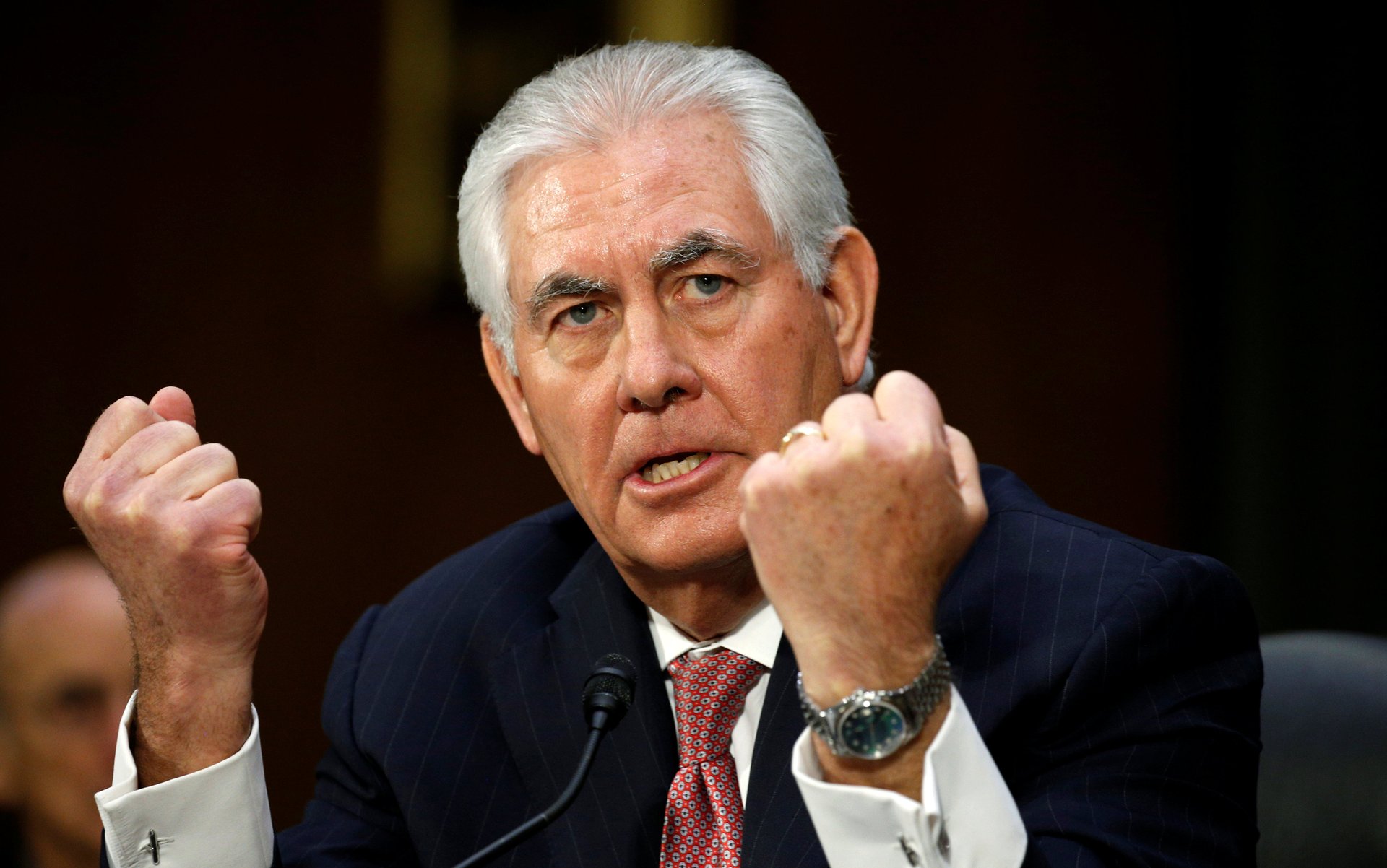Rex Tillerson’s stance on the South China Sea could play into Beijing’s hands
It’s safe to assume that Beijing has not been happy with US actions in the South China Sea in recent years. Chinese leaders have used words like ”illegal” and “provocative” to describe US freedom-of-navigation operations in the contested Spratly archipelago. With international law and norms against them, however, they’ve had a weak argument.


It’s safe to assume that Beijing has not been happy with US actions in the South China Sea in recent years. Chinese leaders have used words like ”illegal” and “provocative” to describe US freedom-of-navigation operations in the contested Spratly archipelago. With international law and norms against them, however, they’ve had a weak argument.
But their argument could get stronger in the near future. Rex Tillerson, in his Jan. 11 confirmation hearing for US secretary of state, had this to say about the militarized islands China has built atop reefs in the Spratlys:
“We’re going to have to send China a clear signal that, first, the island-building stops and, second, your access to those islands also is not going to be allowed.”
The second part of that statement suggests Tillerson thinks the US should limit China’s movements in the South China Sea. If so, that could be problematic. Freedom-of-navigation operations serve to emphasize the fact that nobody has the right to control the open seas. With its aggressive and discredited claims to nearly the entire sea, China has clearly needed to be reminded of this, and the US wields the military clout to serve up an effective reminder on behalf of itself and other nations.
But if the US turns to limiting China’s movements in the sea, it too will be due for such a reminder. Just like the US and other nations, China has the right to move about the high seas unhindered. South China Sea watchers were quick to chime in on social media:
Beijing’s argument that the US is the real aggressor in the waterway has fallen flat, but if Tillerson’s comment is anything to go by, it could soon become an easier one to set forth.